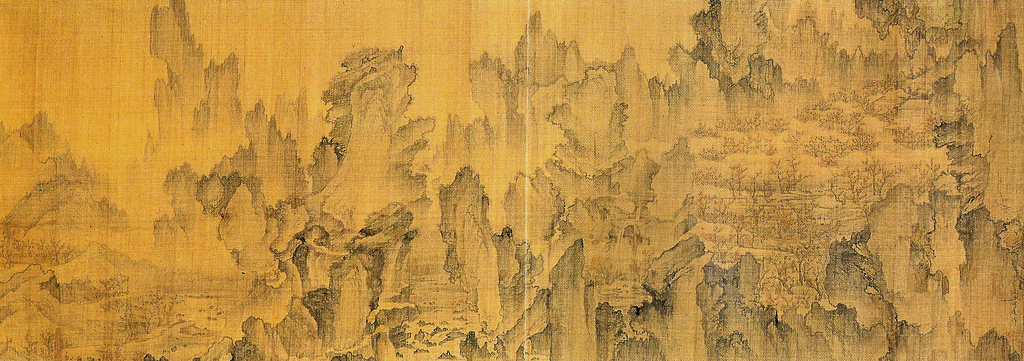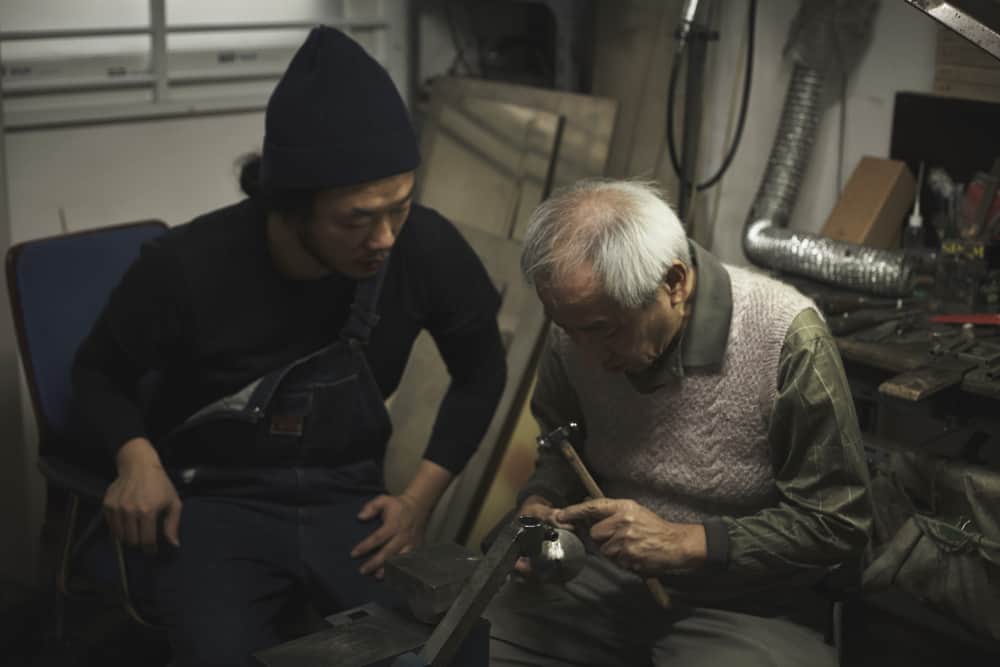Visit the fabled peach garden Mongyudowon and be uplifted by the beauties and thoughts of Korean crafts.
몽유도원도가
몽유도원도가는 천하의 명소이니
그 어느 곳에나 찾을 수 없다.
그러나 그 곳은 마음의 내면에 있다.
마음이 평온하면 도원은 어디에나 있다.
The poem “몽유도원도가” is about the famous land of Mongyudowon.
It is a place that cannot be found anywhere in the world.
But it is a place that exists within the heart.
When the heart is at peace, Mongyudowon is everywhere.
몽유도원도가(蒙遊桃源圖歌)” by Yi Gyu-bo (李奎報), a poet of the Goryeo Dynasty.
✿
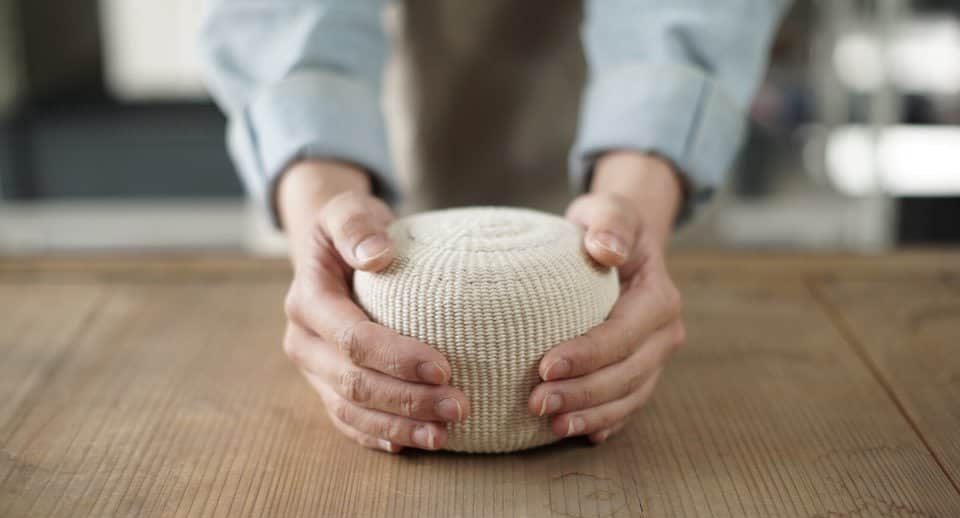 Jeong (정) – Introduction to Korean craft ✿ 27 May - You are invited to a hospitable discussion about the many wonders of South Korean craft today.
Jeong (정) – Introduction to Korean craft ✿ 27 May - You are invited to a hospitable discussion about the many wonders of South Korean craft today. The value of craft in fiction - D Wood describes how craft activates the fictional worlds of "Blue Caftan" and "The Healing Season of Pottery."
The value of craft in fiction - D Wood describes how craft activates the fictional worlds of "Blue Caftan" and "The Healing Season of Pottery."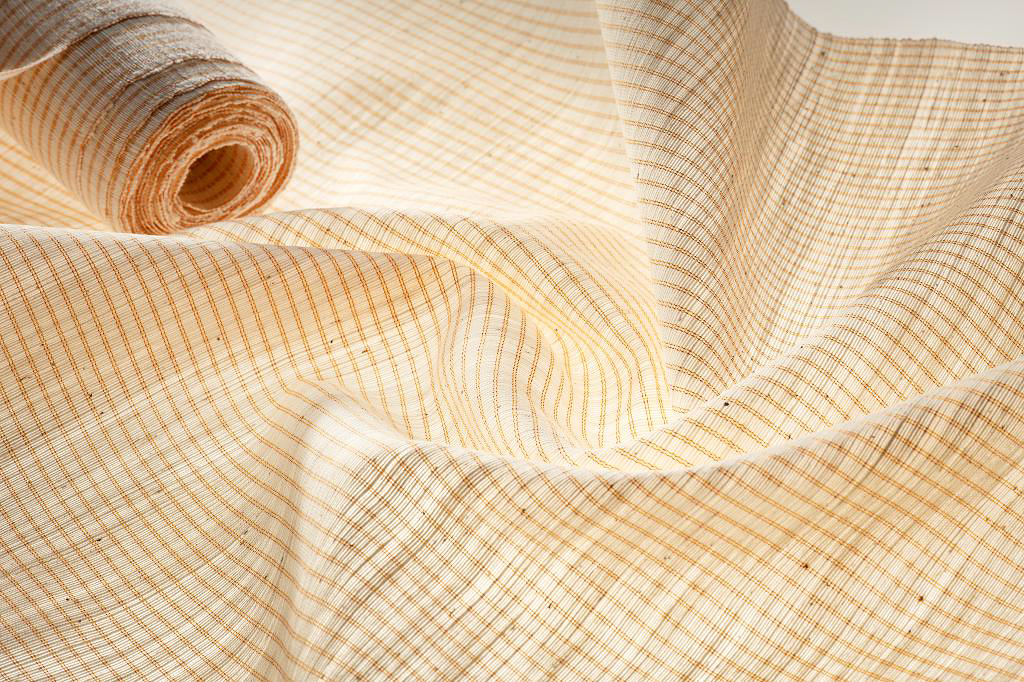 Lee Ji Won: Ancient weaves now - Lee Ji Won (이지원) is a young Korean weaver who revives traditional East Asian textile techniques.
Lee Ji Won: Ancient weaves now - Lee Ji Won (이지원) is a young Korean weaver who revives traditional East Asian textile techniques. Korean Maedeup: A culture of knots - A recent exhibition at the Korean Cultural Centre Australia, in collaboration with the National Folk Museum of Korea, displayed the intricate beauty of knots.
Korean Maedeup: A culture of knots - A recent exhibition at the Korean Cultural Centre Australia, in collaboration with the National Folk Museum of Korea, displayed the intricate beauty of knots. Together with Montaigne’s Cat: Gyeonggi Ceramics Biennale 2024 - In 2024, South Korea's international ceramics biennale will reflect how ceramics bridges race, culture and history.
Together with Montaigne’s Cat: Gyeonggi Ceramics Biennale 2024 - In 2024, South Korea's international ceramics biennale will reflect how ceramics bridges race, culture and history.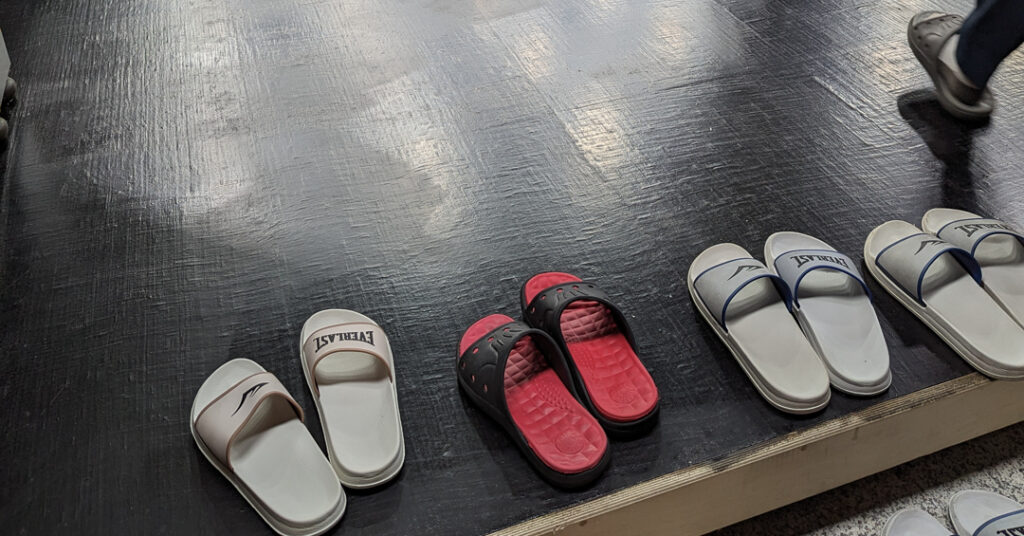 One step back, two steps forward: The key to South Korea’s success - How does keeping alive Joseon dynasty heritage help South Korea become a world leader in contemporary crafts?
One step back, two steps forward: The key to South Korea’s success - How does keeping alive Joseon dynasty heritage help South Korea become a world leader in contemporary crafts?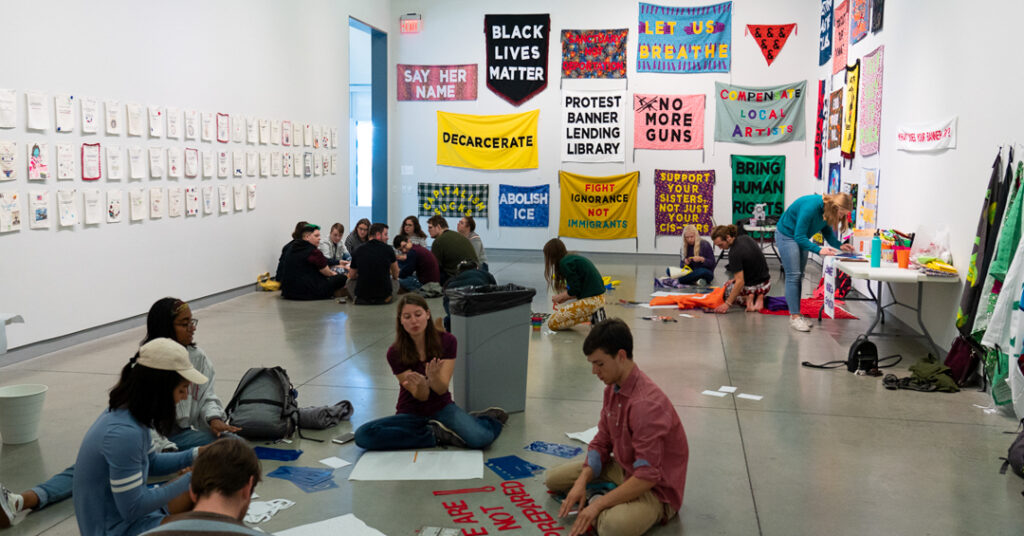 The Protest Banner Lending Library: Democracy in the making - Aram Han Sifuentes' banners aren't just about protest, the workshops for making them provide a rare opportunity for open dialogue between political differences.
The Protest Banner Lending Library: Democracy in the making - Aram Han Sifuentes' banners aren't just about protest, the workshops for making them provide a rare opportunity for open dialogue between political differences.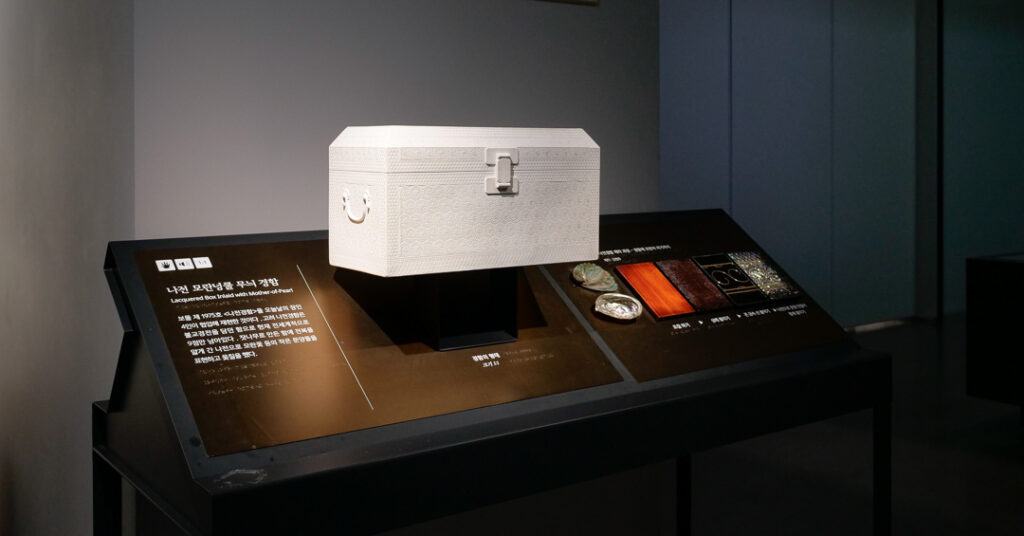 Tactile stations at the Seoul Museum of Craft Art - General Director of SeMoCA, Soo Jeong Kim, about the story of this iconic new craft museum and how it teaches by touch as well as sight.
Tactile stations at the Seoul Museum of Craft Art - General Director of SeMoCA, Soo Jeong Kim, about the story of this iconic new craft museum and how it teaches by touch as well as sight.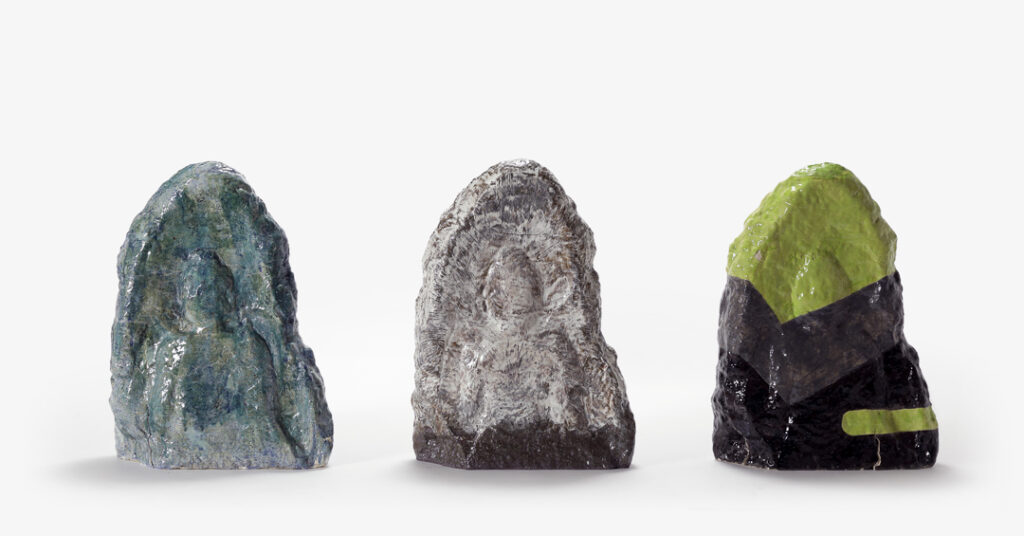 Self Medication: Korean Ceramic Art - Choi Leeji shares her vision of Korean ceramics, as it flows out of its traditional sources.
Self Medication: Korean Ceramic Art - Choi Leeji shares her vision of Korean ceramics, as it flows out of its traditional sources.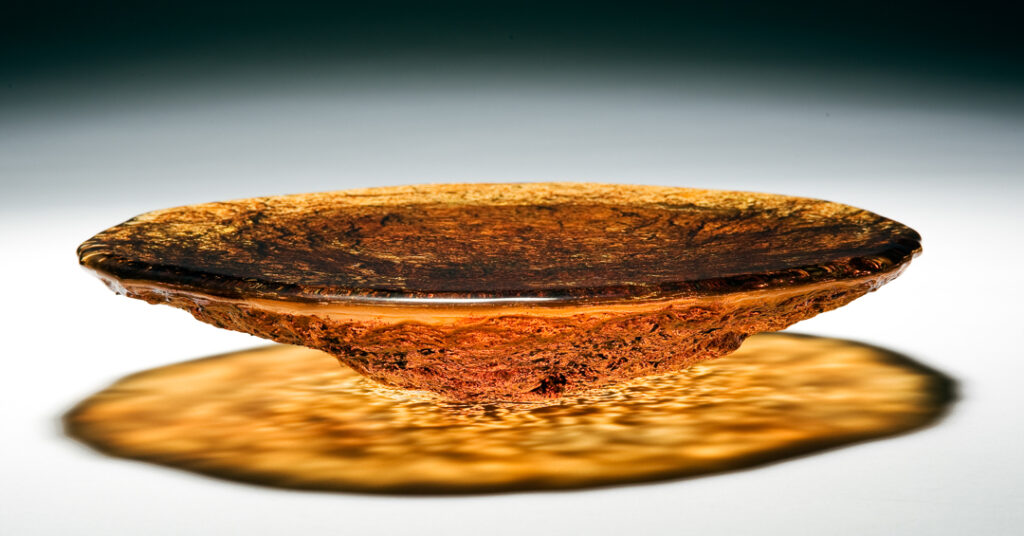 The scent of Korean contemporary craft - Hyeyoung CHO identifies the distinct aroma of Korean culture that imbues its authentic craft.
The scent of Korean contemporary craft - Hyeyoung CHO identifies the distinct aroma of Korean culture that imbues its authentic craft.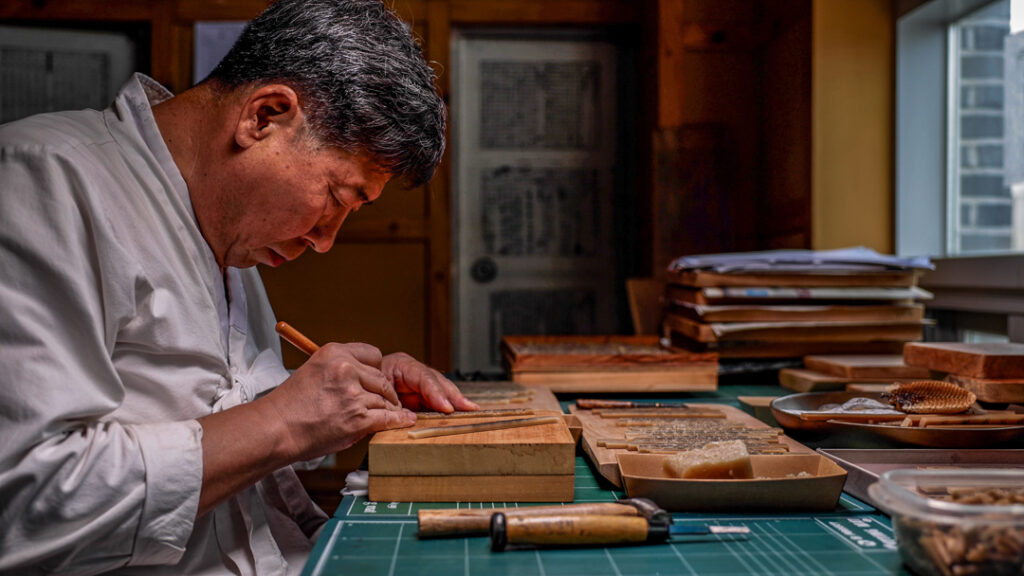 Scent in 2023 Cheongju Craft Biennale - Artistic Director, KANG Jaeyoung, explicates the concept of "objet" that frames the extraordinary works of the Cheongju Craft Biennale.
Scent in 2023 Cheongju Craft Biennale - Artistic Director, KANG Jaeyoung, explicates the concept of "objet" that frames the extraordinary works of the Cheongju Craft Biennale.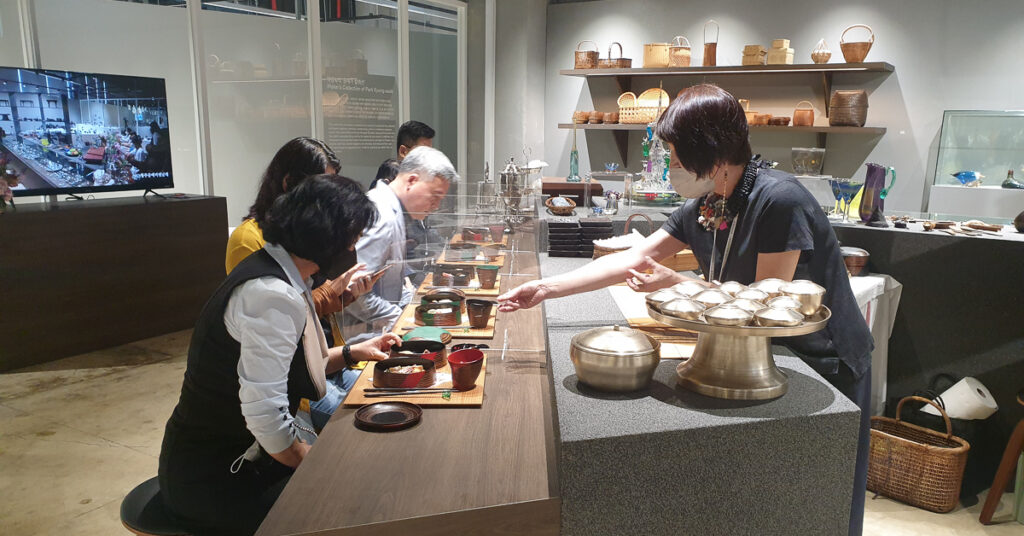 Kyungsook Park ✿ The craft of conviviality - Misun Rheem explains why she brought a dinner party into the Cheongju International Craft Biennale
Kyungsook Park ✿ The craft of conviviality - Misun Rheem explains why she brought a dinner party into the Cheongju International Craft Biennale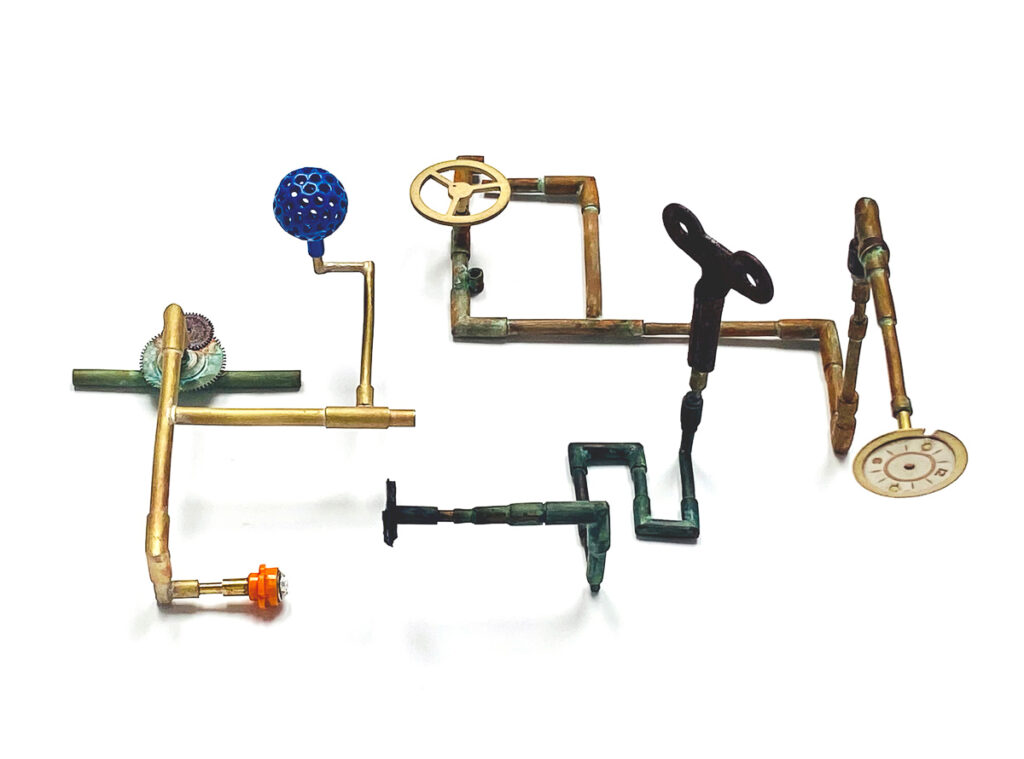 Jin ah Jo ✿ A pipeline to Buddha 🇰🇷 - Jeweller Jin Ah Jo shares an intense lockdown journey that transformed infrastructure into adornment (with Korean text).
Jin ah Jo ✿ A pipeline to Buddha 🇰🇷 - Jeweller Jin Ah Jo shares an intense lockdown journey that transformed infrastructure into adornment (with Korean text).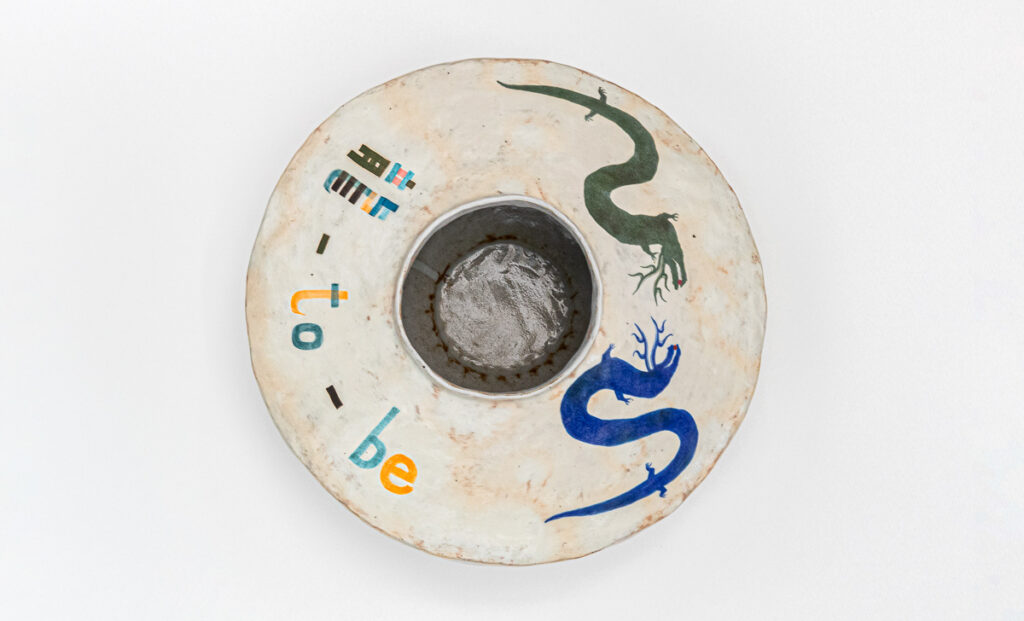 Imaginary Animals, Auspicious Companions - In contemporary South Korean ceramics, Moon Yujin finds a consolation of animality, especially in the playful work of Yon Hokyung
Imaginary Animals, Auspicious Companions - In contemporary South Korean ceramics, Moon Yujin finds a consolation of animality, especially in the playful work of Yon Hokyung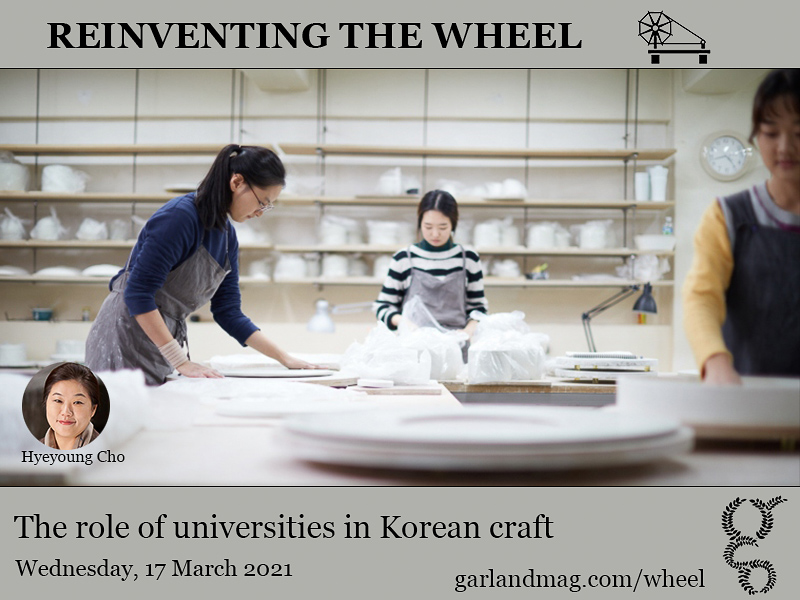 The role of universities in the success of Korean craft - In our sixth Reinventing the Wheel talk, Hyeyoung Cho reveals the pivotal role of the tertiary sector in the modern Korean craft. This will open up a discussion about the role of universities generally.
The role of universities in the success of Korean craft - In our sixth Reinventing the Wheel talk, Hyeyoung Cho reveals the pivotal role of the tertiary sector in the modern Korean craft. This will open up a discussion about the role of universities generally.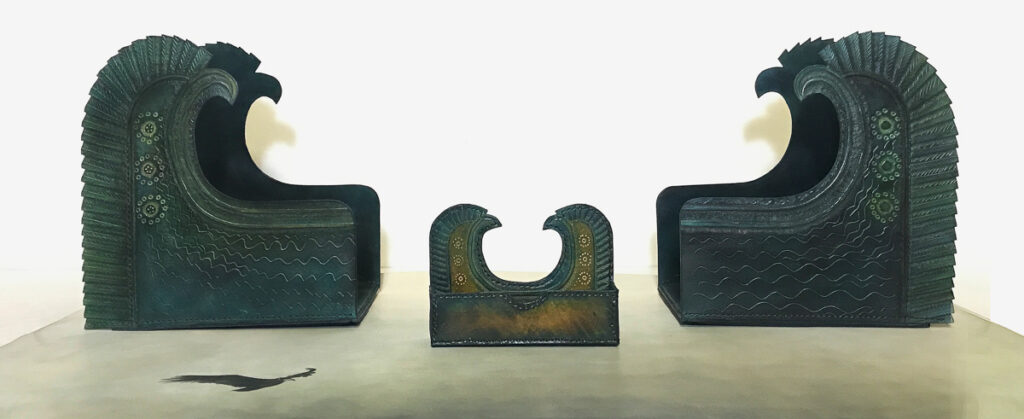 Mansae balhada ✿ Cheongju’s ancient technology now - Eunjin Ko describes her project to create desk ware for contemporary use inspired by the eagle which protects Cheongju’s iconic temple. She continues its ancient history of innovation.
Mansae balhada ✿ Cheongju’s ancient technology now - Eunjin Ko describes her project to create desk ware for contemporary use inspired by the eagle which protects Cheongju’s iconic temple. She continues its ancient history of innovation. 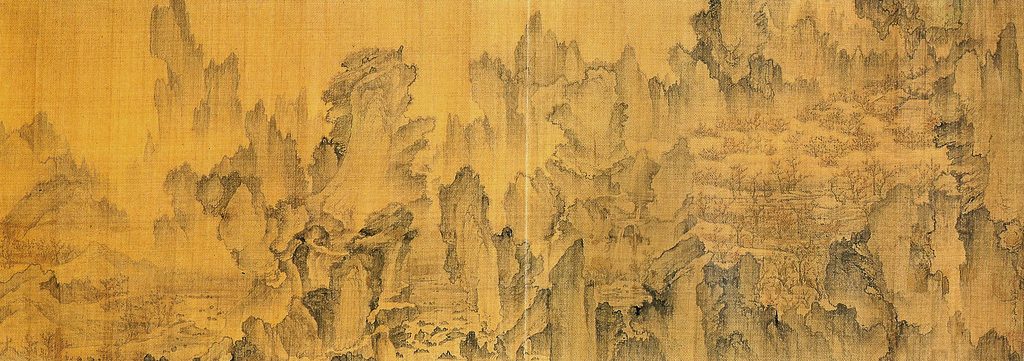 Mongyudowon: South Korea’s craft utopia - The epic craft events in East Asia often take on a utopian theme. This year's Cheongju International Craft Biennale is called Mongyudowon, which is a mythical landscape of idealised and inaccessible beauty.
Mongyudowon: South Korea’s craft utopia - The epic craft events in East Asia often take on a utopian theme. This year's Cheongju International Craft Biennale is called Mongyudowon, which is a mythical landscape of idealised and inaccessible beauty.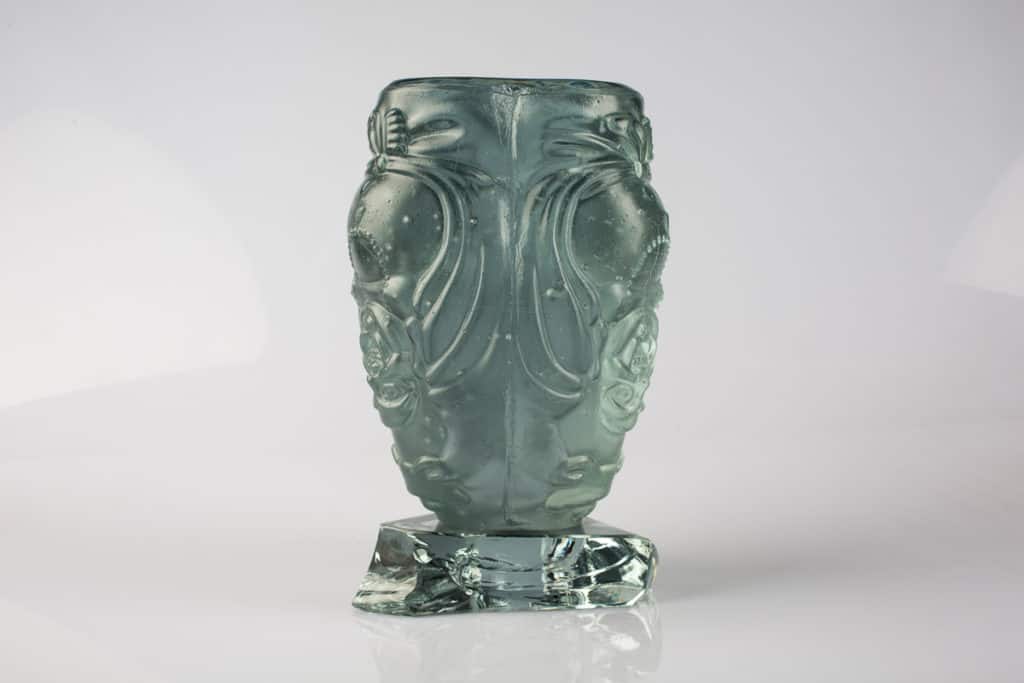 NOT 不 ✿ TV screen Buddha - Michael Fitzgerald writes about about the work of 不 NOT cast from old TV screens as a way of seeing the future through today's ruins.
NOT 不 ✿ TV screen Buddha - Michael Fitzgerald writes about about the work of 不 NOT cast from old TV screens as a way of seeing the future through today's ruins.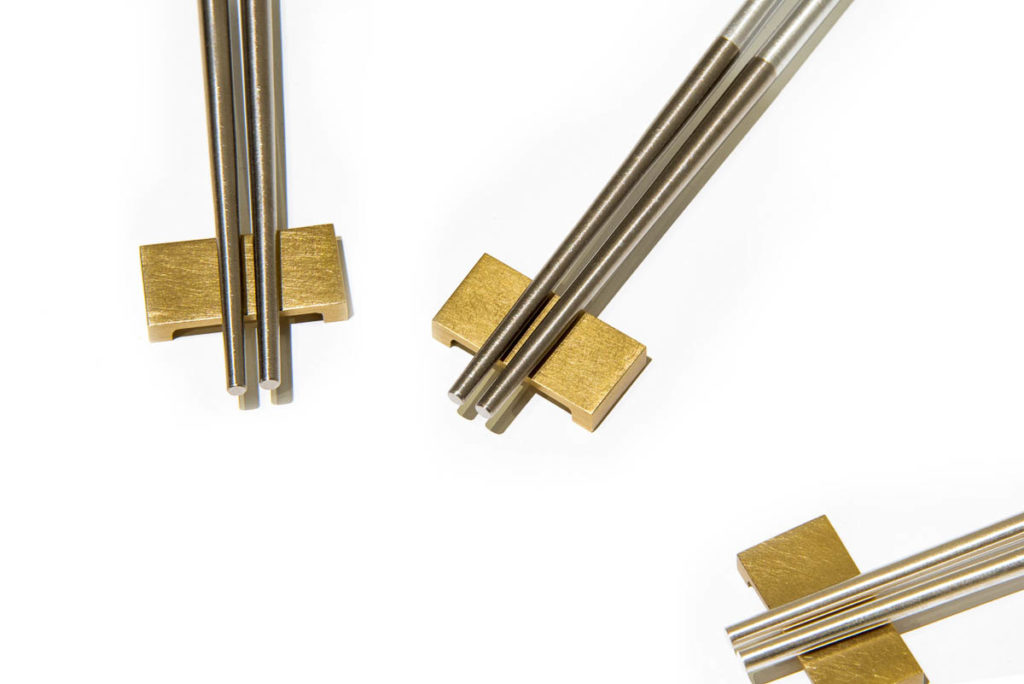 Why do Koreans use metal chopsticks? - Unlike other Asian cultures whose chopsticks are primarily made of wood, Korean chopsticks are made of metal. Why?
Why do Koreans use metal chopsticks? - Unlike other Asian cultures whose chopsticks are primarily made of wood, Korean chopsticks are made of metal. Why?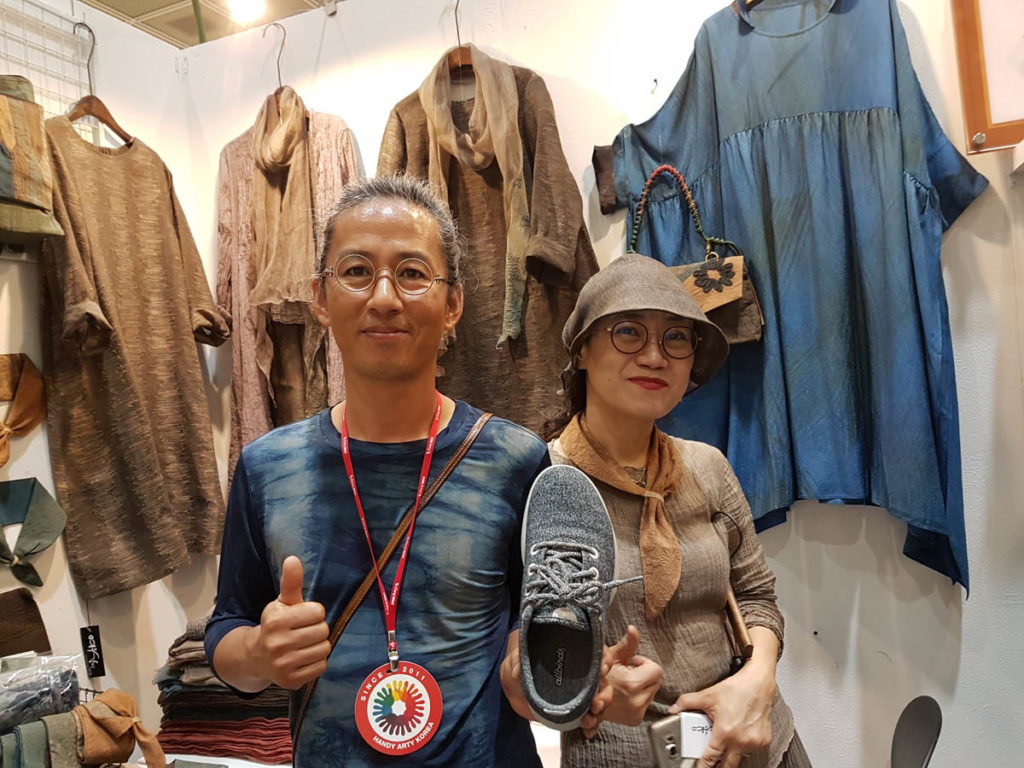 The enduring appeal of k-craft - Seoul's Handmade Korea sits alongside CICB as an event to attract the world's craft makers and admirers. The enduring beauty of K-craft may be just as important, in the longer run, as the latest fleeting k-pop sensation.
The enduring appeal of k-craft - Seoul's Handmade Korea sits alongside CICB as an event to attract the world's craft makers and admirers. The enduring beauty of K-craft may be just as important, in the longer run, as the latest fleeting k-pop sensation.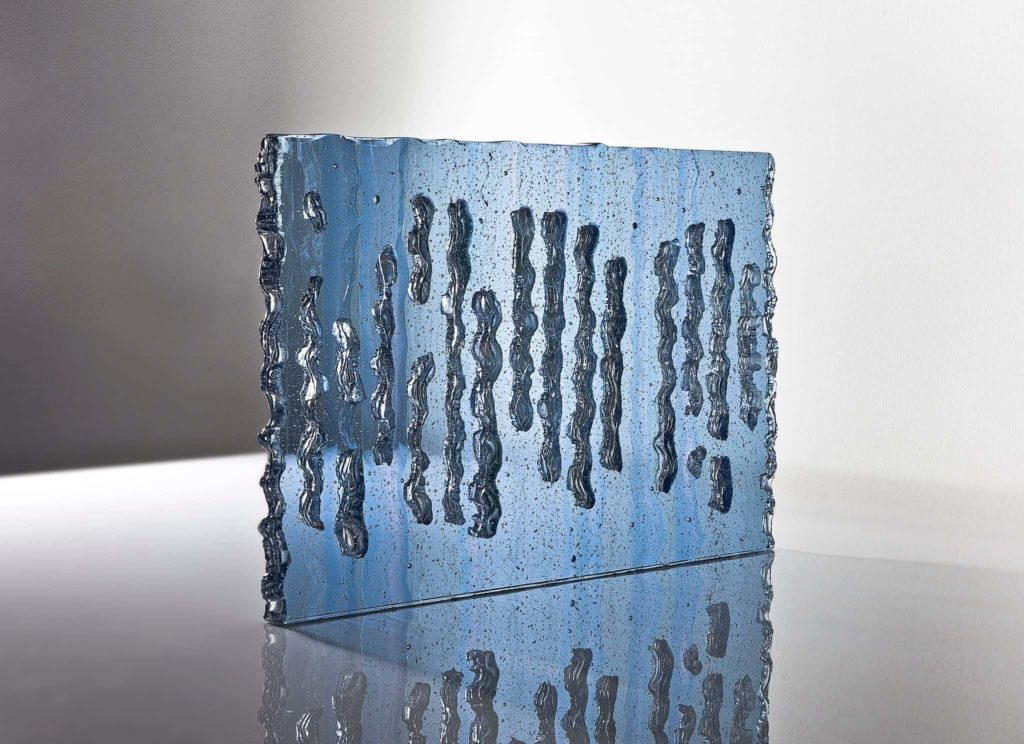 When do stories become designs? - A series of glass works by Mimi Jung tell a story of migration. What does this material offer that can't be expressed through words?
When do stories become designs? - A series of glass works by Mimi Jung tell a story of migration. What does this material offer that can't be expressed through words?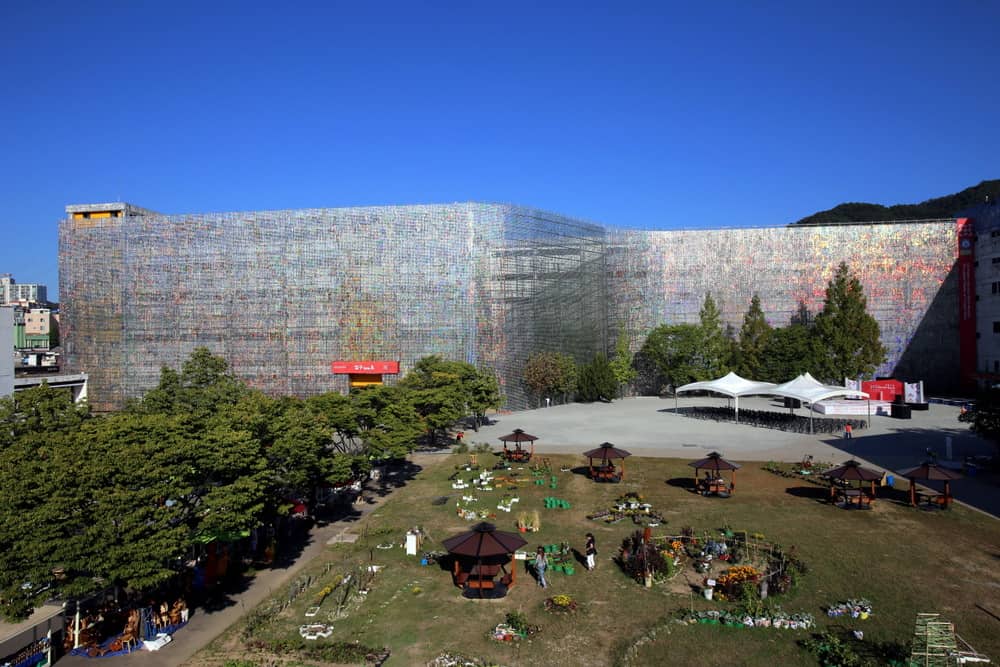 Will your country be part of the world’s biggest craft biennale? - Garland began its journey in South Korea at the 2017 Cheongju International Craft Biennale (see the article by Hyeyoung Cho). We're pleased to support this important event by sharing its recent call for invited countries.
Will your country be part of the world’s biggest craft biennale? - Garland began its journey in South Korea at the 2017 Cheongju International Craft Biennale (see the article by Hyeyoung Cho). We're pleased to support this important event by sharing its recent call for invited countries.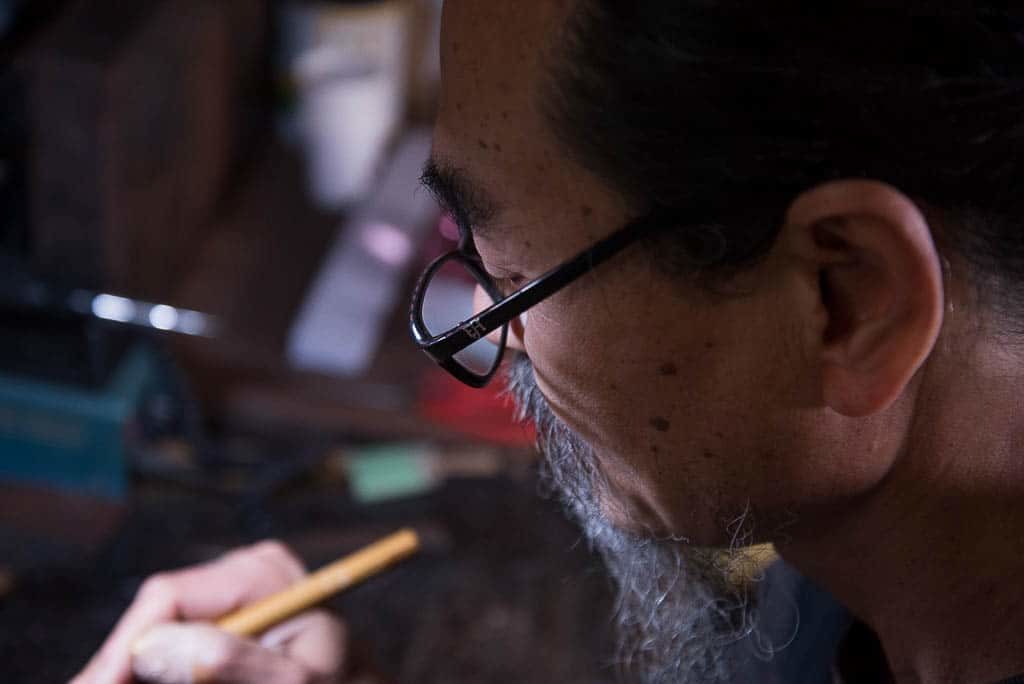 Yoo Pil-mu, the brush master artisan - In January, Jeungpyeong-gun’s first Chungcheongbuk-do Intangible Cultural Property was recognized. This was Yoo Pil-mu, the brush master artisan, who has been maintaining the tradition of Korean brush alone for the past 40 years, was named as the first.
Yoo Pil-mu, the brush master artisan - In January, Jeungpyeong-gun’s first Chungcheongbuk-do Intangible Cultural Property was recognized. This was Yoo Pil-mu, the brush master artisan, who has been maintaining the tradition of Korean brush alone for the past 40 years, was named as the first.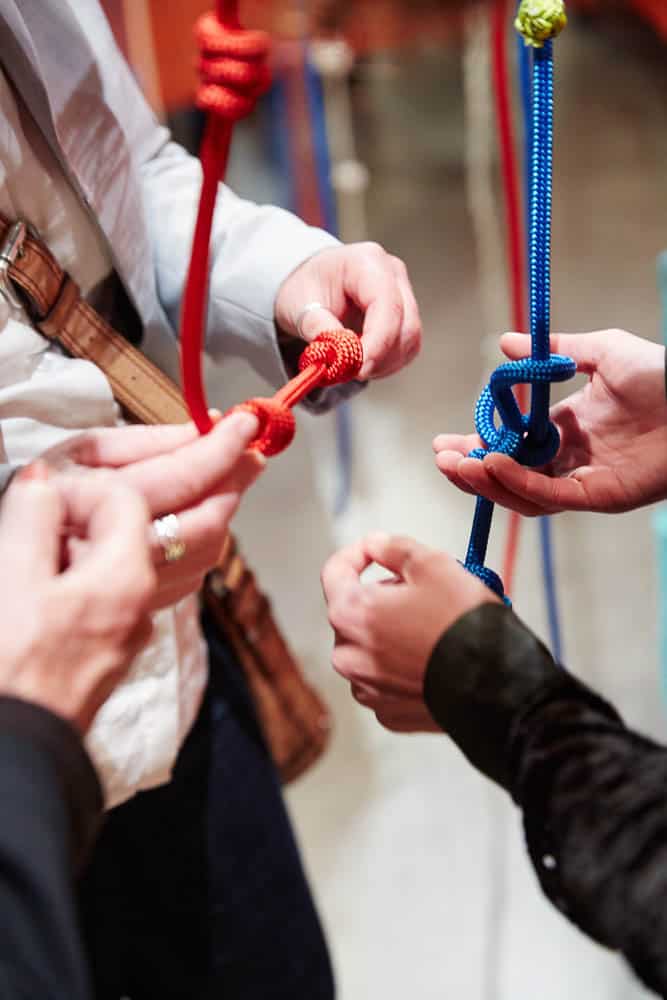 Knot Touch: From greenhouse to gallery - Jaqui Knowles explains the ways in which the NZ Maritime Museum has unraveled the potential of Jae Kang's tomato plant installation.
Knot Touch: From greenhouse to gallery - Jaqui Knowles explains the ways in which the NZ Maritime Museum has unraveled the potential of Jae Kang's tomato plant installation. Korean Craft Trend Fair – 7-10 December - A selection of work from the Craft Trend Fair, South Korea's largest craft market organised by the Korea Craft & Design Foundation.
Korean Craft Trend Fair – 7-10 December - A selection of work from the Craft Trend Fair, South Korea's largest craft market organised by the Korea Craft & Design Foundation.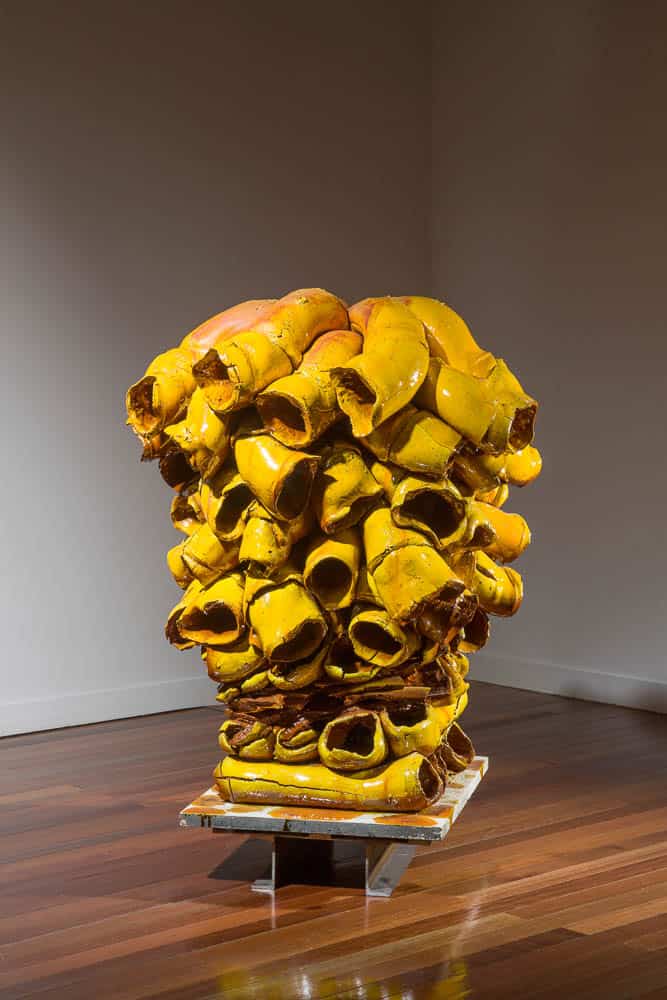 Winners of the 9th Gyeonggi International Ceramic Biennale 2017 - The GICB2017 primarily sought to make ceramics a more integral part of everyday life by straightening up one part of massive forms that have been dealt with by contemporary ceramics. In the context, three comparable exhibition venues where designated and the exhibitions were composed in a way that made the narrativity of the wor
Winners of the 9th Gyeonggi International Ceramic Biennale 2017 - The GICB2017 primarily sought to make ceramics a more integral part of everyday life by straightening up one part of massive forms that have been dealt with by contemporary ceramics. In the context, three comparable exhibition venues where designated and the exhibitions were composed in a way that made the narrativity of the wor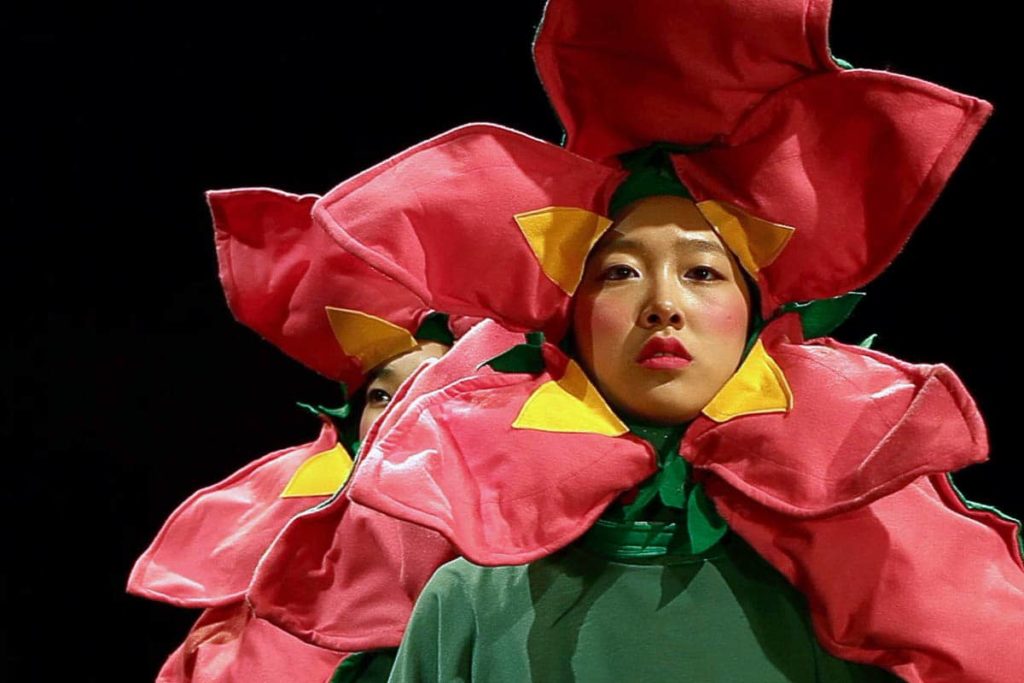 Immortal flower (무궁화) - Laura Carthew's exhibition Immortal flower reflects on the Korean national flower: the mugunghwa (무궁화). Her works shows how an outside's perspective can enliven national identify from within.
Immortal flower (무궁화) - Laura Carthew's exhibition Immortal flower reflects on the Korean national flower: the mugunghwa (무궁화). Her works shows how an outside's perspective can enliven national identify from within.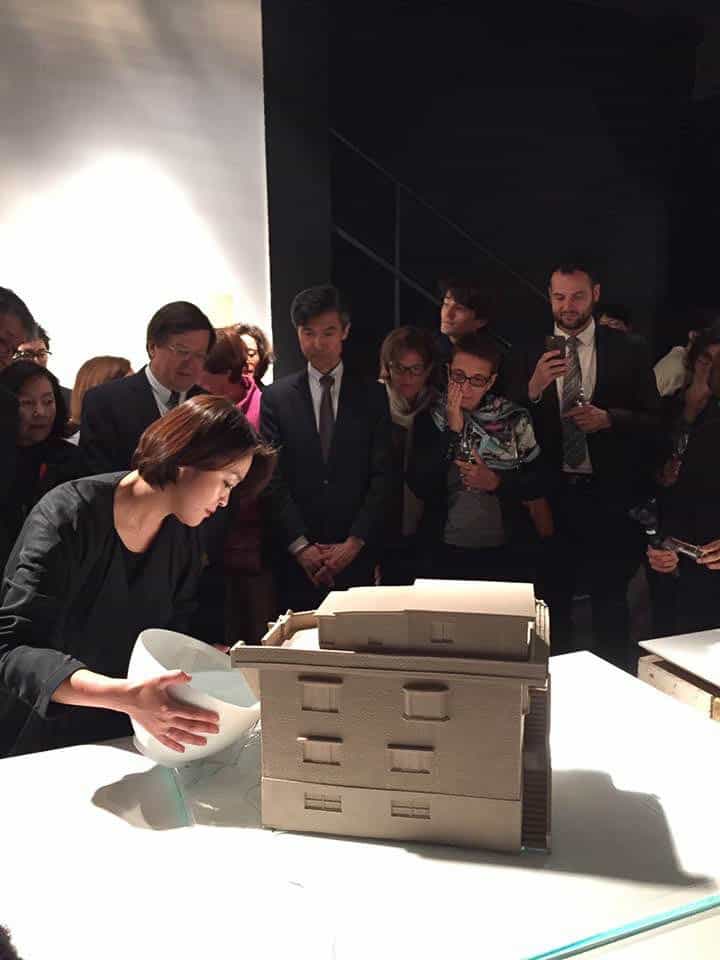 Korean ceramics in France, by Hyeyoung Cho - The Fondation d’entreprise Bernardaud (also known as Fondation Bernardaud), a part of the Bernardaud porcelain manufacturing company in Limoges, France was founded in 2002 by Michel Bernardaud and it has been under the direction of Hélène Huret since
Korean ceramics in France, by Hyeyoung Cho - The Fondation d’entreprise Bernardaud (also known as Fondation Bernardaud), a part of the Bernardaud porcelain manufacturing company in Limoges, France was founded in 2002 by Michel Bernardaud and it has been under the direction of Hélène Huret since The Naked Tree: A tribute to Park Wan-So - Jin Ah Jo makes a work as a tribute to her favourite Korean author, Kyung-A.
The Naked Tree: A tribute to Park Wan-So - Jin Ah Jo makes a work as a tribute to her favourite Korean author, Kyung-A.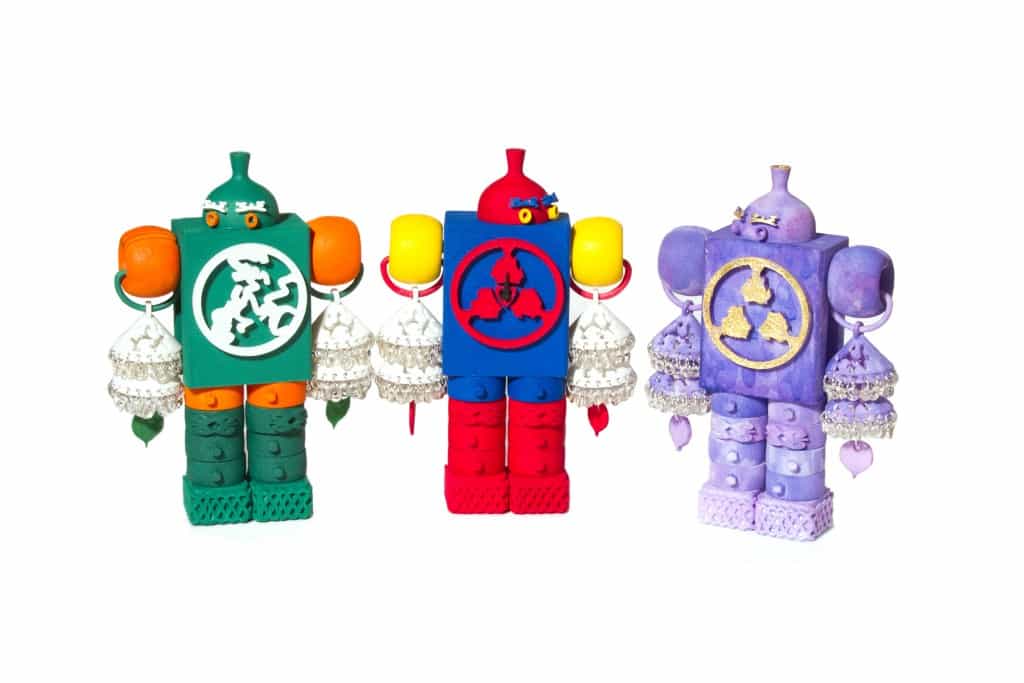 Unexpected linkage - Sun Woong Bang describes how his work connects the ancient Celtic and Korean cultures,
Unexpected linkage - Sun Woong Bang describes how his work connects the ancient Celtic and Korean cultures,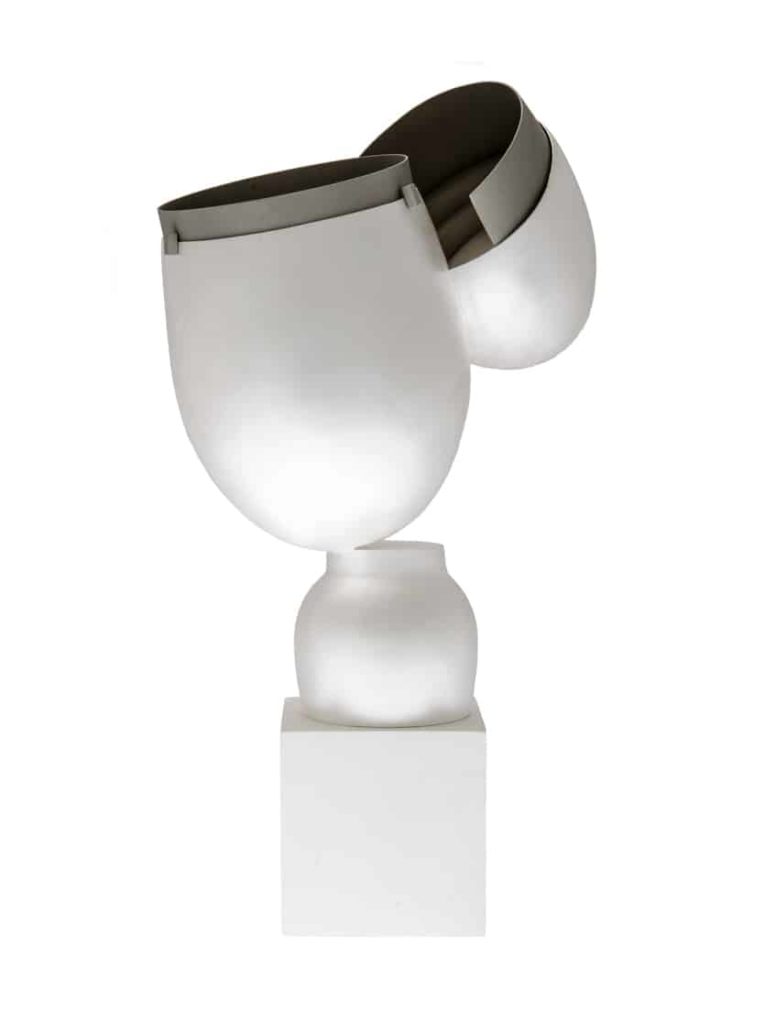 Condiment object - Daehoon Kong describes the ideas and techniques that shaped his award winning Condiment Object.
Condiment object - Daehoon Kong describes the ideas and techniques that shaped his award winning Condiment Object.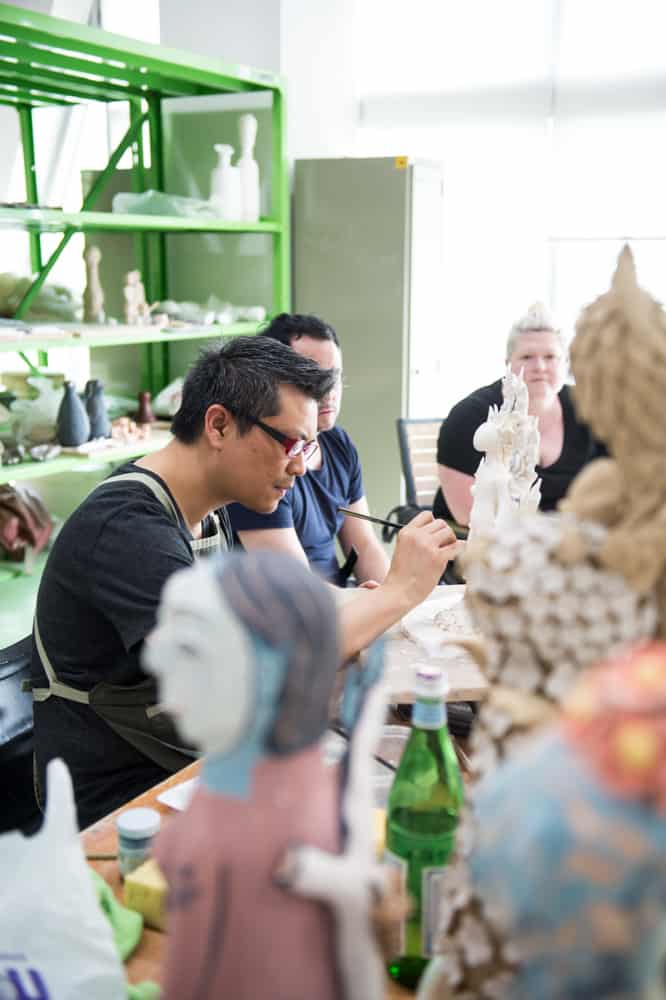 Beyond Limitations Mentorship camp, ClayArch Gimhae Museum - Jane DeBoos confesses to a liking for the Korean custom of formal respect in the workshop.
Beyond Limitations Mentorship camp, ClayArch Gimhae Museum - Jane DeBoos confesses to a liking for the Korean custom of formal respect in the workshop. Making clay precious in jewellery - Hyunju Kim uses the expressive potential of ceramics in jewellery form.
Making clay precious in jewellery - Hyunju Kim uses the expressive potential of ceramics in jewellery form.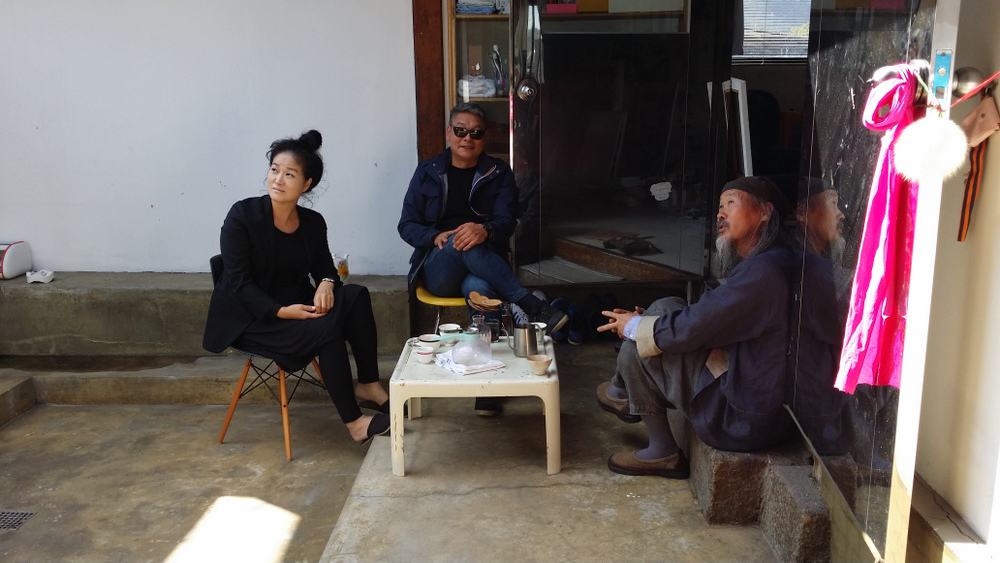 Yoon Jeong-won’s spiritual materialism - The artist Yoon Jeong-won uses storybook imagery to evoke the myriad of traditions in Korean culture. Besides major works for exhibition, she has a daily exercise of drawing on precious Korean paper made by Lee Jong Kuk (Mabeul), from a tree especially planted for her.
Yoon Jeong-won’s spiritual materialism - The artist Yoon Jeong-won uses storybook imagery to evoke the myriad of traditions in Korean culture. Besides major works for exhibition, she has a daily exercise of drawing on precious Korean paper made by Lee Jong Kuk (Mabeul), from a tree especially planted for her.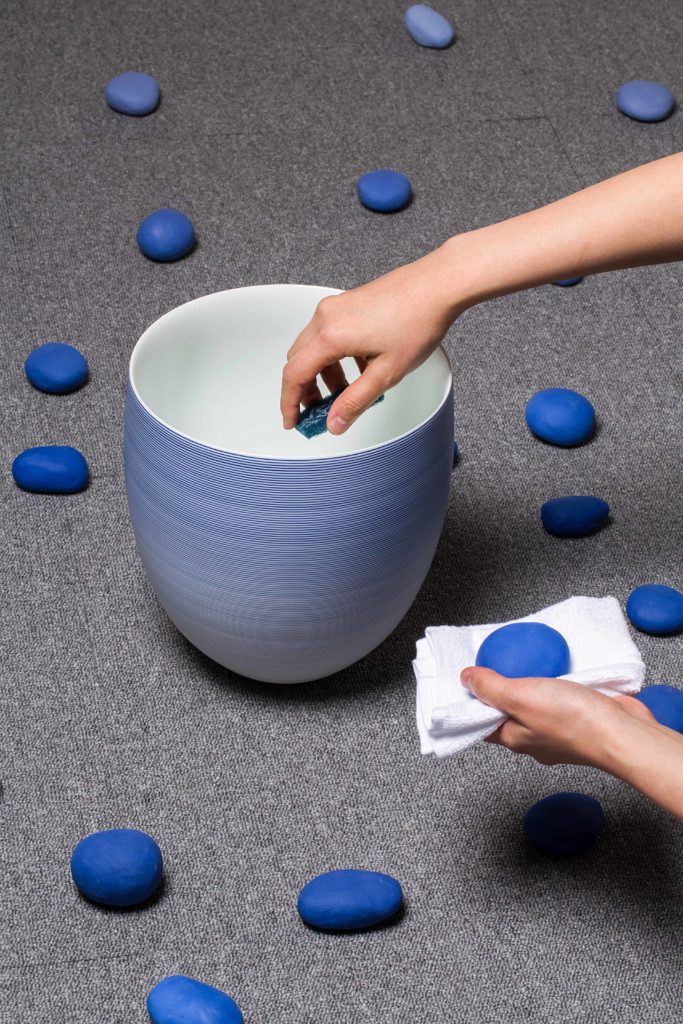 The art of polishing stones - Yujin Moon reflects on the state of Korean culture and two innovative ceramics projects that take craft into everyday life.
The art of polishing stones - Yujin Moon reflects on the state of Korean culture and two innovative ceramics projects that take craft into everyday life. 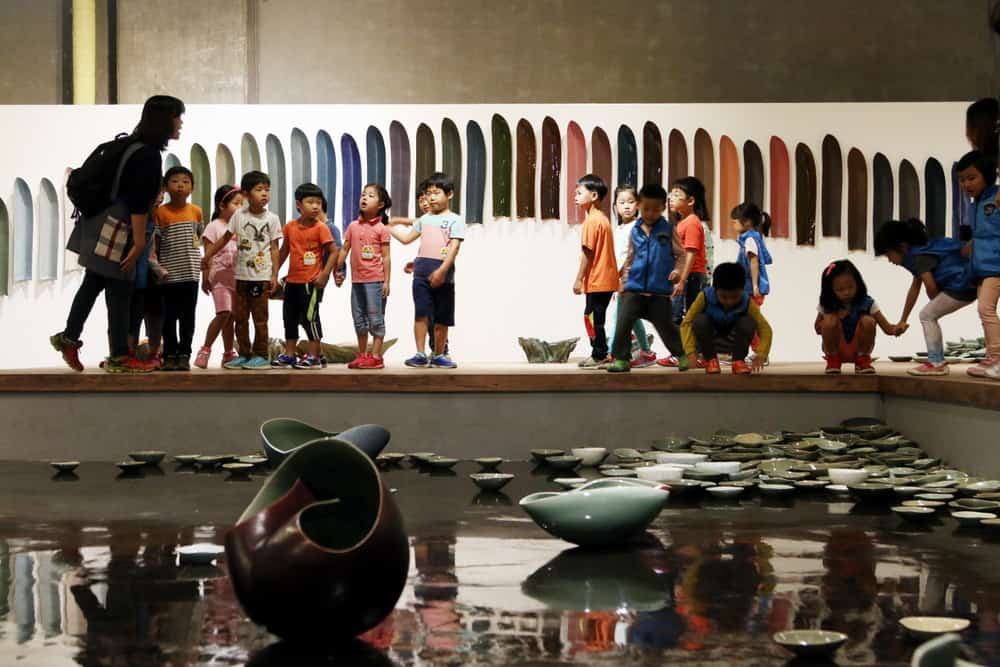 How to present Korean craft to the world - Artistic Director of the 2015 Cheongju International Craft Biennale reflects on the importance of craft to Korean culture and how this can be presented to new generations.
How to present Korean craft to the world - Artistic Director of the 2015 Cheongju International Craft Biennale reflects on the importance of craft to Korean culture and how this can be presented to new generations.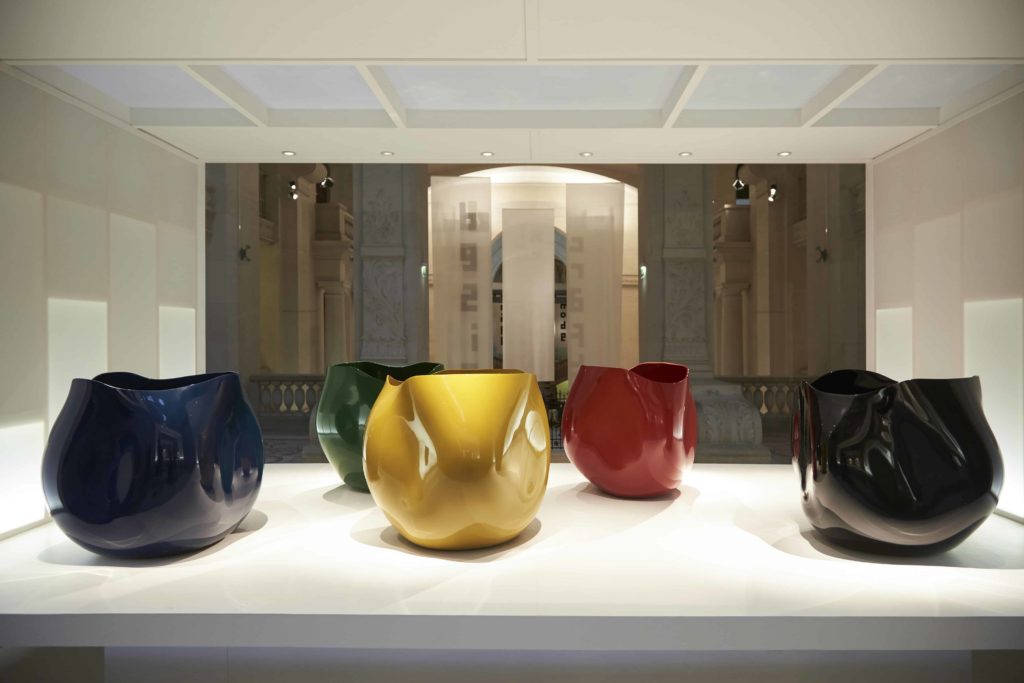 Ott-chil (Korean lacquer): A tradition for the present - Misun Rheem reveals the complexity of lacquer craft and its significance as a link between yesterday and today.
Ott-chil (Korean lacquer): A tradition for the present - Misun Rheem reveals the complexity of lacquer craft and its significance as a link between yesterday and today. A Korean Sensibility: Something to Prove - Tony Marsh reflects on the ways Korean ceramics students have developed in response to the stimulus of Long Beach, California
A Korean Sensibility: Something to Prove - Tony Marsh reflects on the ways Korean ceramics students have developed in response to the stimulus of Long Beach, California Eunbum Lee – 법고창신, the spirit of creating the new, based on the old - Kevin Murray seeks out the spirit of celadon and discovers the gentle perseverance of Eunbum Lee.
Eunbum Lee – 법고창신, the spirit of creating the new, based on the old - Kevin Murray seeks out the spirit of celadon and discovers the gentle perseverance of Eunbum Lee.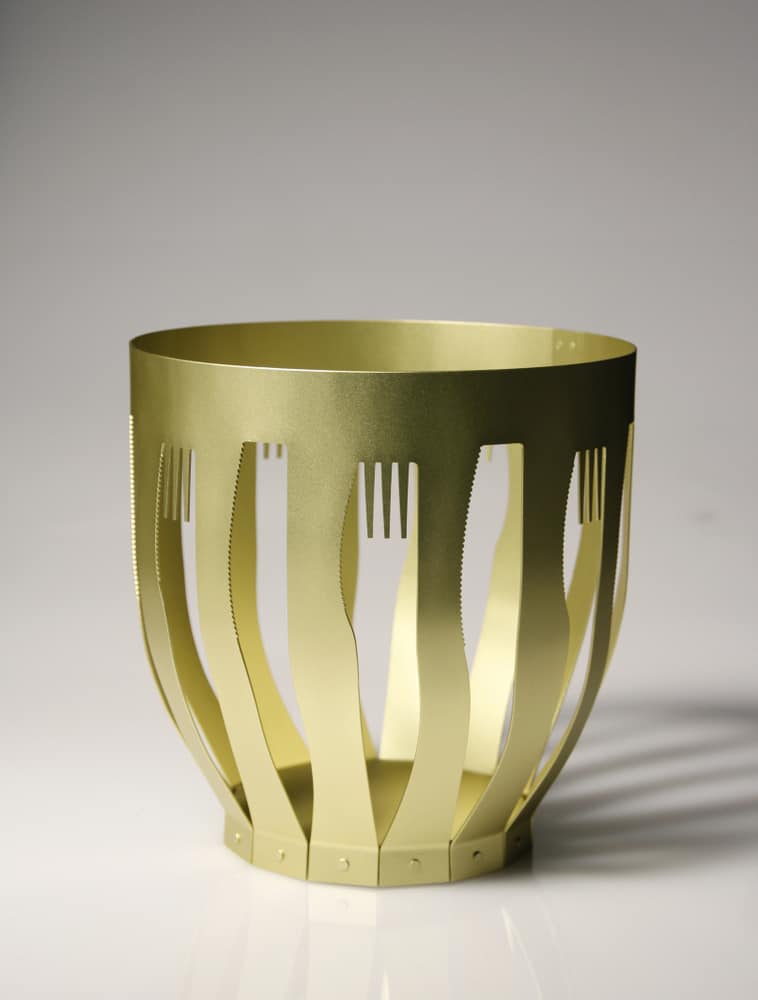 Simple but ethical - Saemi Cho writes about the work of metalsmith Ye-yeon Park as a compelling example of ethical craft.
Simple but ethical - Saemi Cho writes about the work of metalsmith Ye-yeon Park as a compelling example of ethical craft.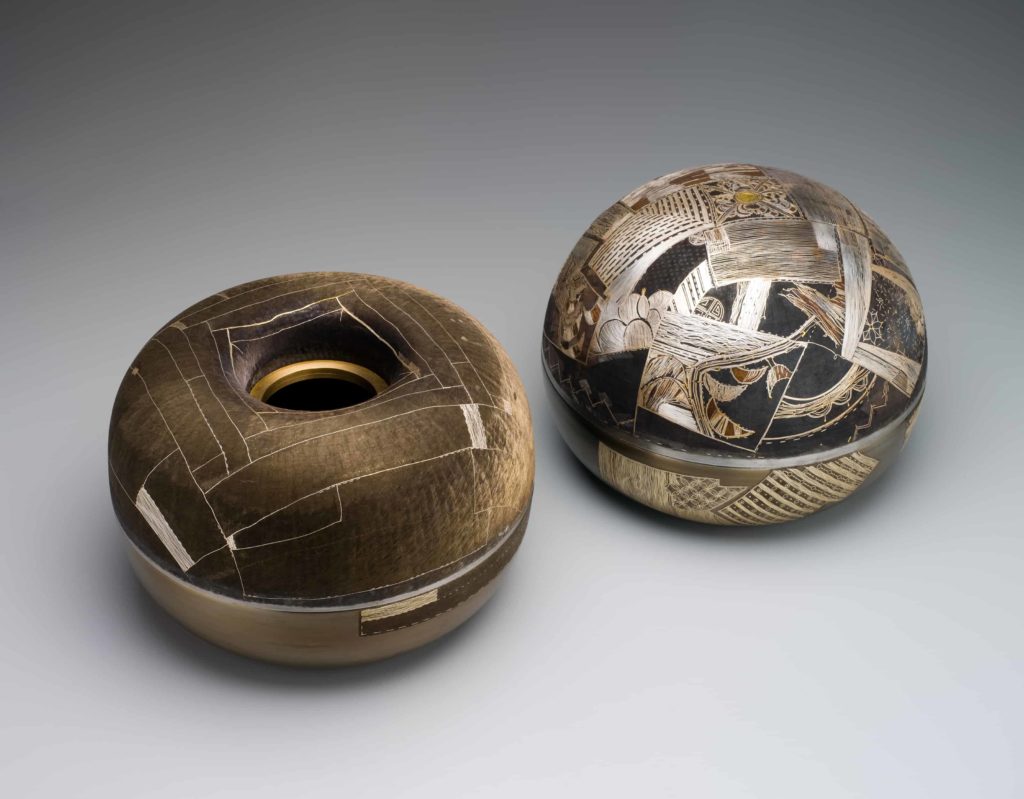 Joungmee Do’s Spirit of Jang-in - Min-Jung Kim explains the Korean concept of Jang-in and its present in the work of Joungmee Do.
Joungmee Do’s Spirit of Jang-in - Min-Jung Kim explains the Korean concept of Jang-in and its present in the work of Joungmee Do.

